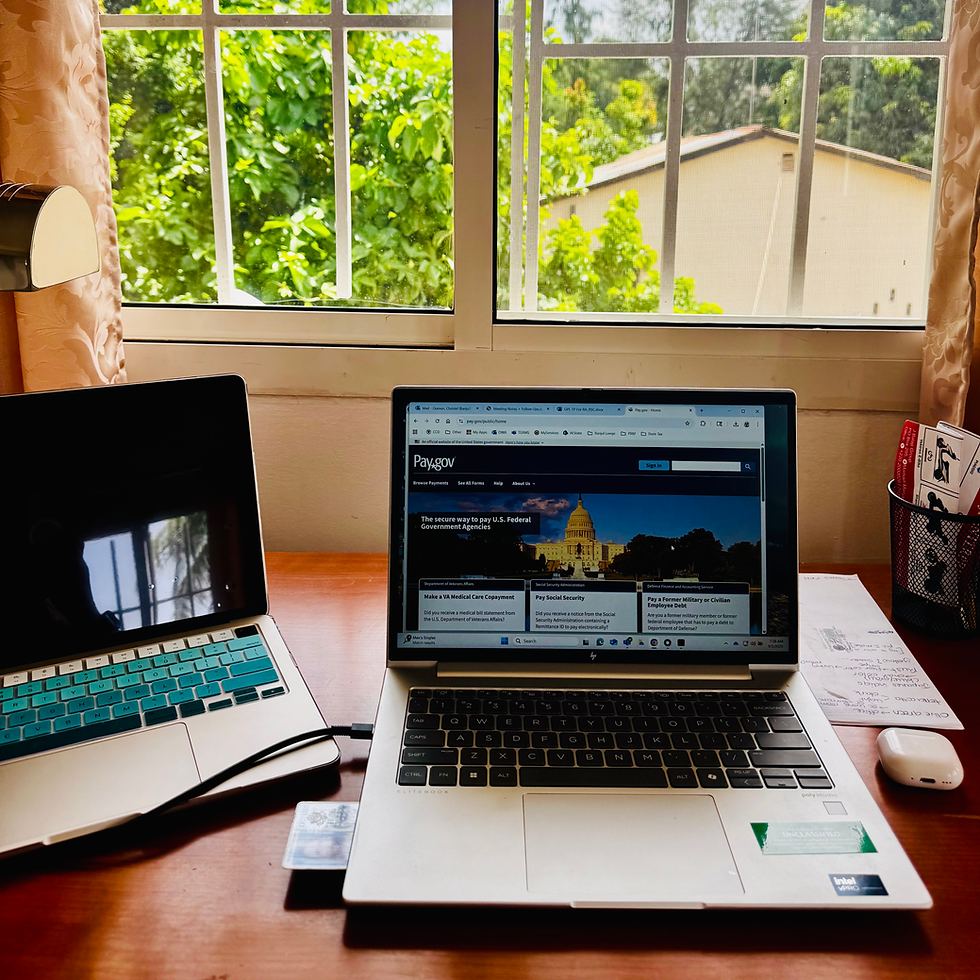First week in consular affairs: the basics
- Owner

- Aug 16, 2020
- 3 min read
After two weeks of quarantine in Berlin I started working in the office of consular affairs. I go to the office every day and apart from wearing a face mask in the hallways it feels pretty normal.
In our consulates the office is typically split into two: the non-immigrant visa (NIV) section and the American citizen services (ACS) section.

I‘m starting out in NIV—also pretty typical for a new officer—which basically means I’m dealing with people who want to travel to the U.S. and need visas.
Visas have always been tricky but with COVID-19 it’s even more complicated. We have a hell of a time deciding who has the right to travel under both the immigration law and the ever-growing number of presidential proclamations.
Why are visas tricky?
First of all, there are many types of visas. And they all have different names and requirements that you, as a consular officer, have to learn by heart. As a brand new officer that’s pretty overwhelming.
For example, businesspeople may travel to the U.S. on an ESTA (not a visa) because Germany falls under the visa waiver program. But they may still apply for a 10-year tourist/business visa for a variety of reasons. If this person is going to live in the U.S. for work the employer must petition the U.S. government for an H1B visa, and H4s for family members. If a worker has “extraordinary abilities” however, an O visa might be more appropriate. Although certain categories, like team athletes and band players, can only qualify for P visas, while academics who are on a research/teaching exchange should apply for J visas, journalists must apply for I visas, and crew members of ships and planes for C1D visas. See what I mean?
In a way, I’m lucky there’s such a variety of visa applicants in Germany—it’s challenging at first but it makes the work more diverse. If you work on the border in Mexico, for example, you may interview people who just want to go shopping in the U.S. half the time. In Argentina, I heard, there’s an absurd amount of families asking for B2 visas to visit Disney world—the birthday wish of every 15-year old there, apparently.
Another factor that influences visa work is the so-called issuance rate. In countries like Germany almost everyone who applies qualifies for a visa—they may have brought the wrong paperwork, or forgotten to pay some type of reciprocity fee, but after fixing that they are more than welcome to visit the U.S. because they are great travelers: they contribute to the U.S. economy with their investments, academic work and tourist expenditures. And they go back home once they’re done.
In many other countries, unfortunately, this is not the case. In Nigeria, for example, less than half of those who apply for tourist/business visas qualify. They often don’t meet the requirements because they don’t have sufficient funds for their proposed trip, or they can’t prove they have any intention of coming back. Consular officers have to say no to lots of applicants, which can be painful.
How COVID-19 changes the game
The current epidemic has slowed down our operations. Fewer people apply for visas and many who do don’t qualify anymore. Instead of the usual 75 people I only interview 25-40 each day. That still feels like a lot of work at the moment, but my much more experienced colleague thinks it’s breeze. If the numbers dip even lower we have to start getting concerned about our finances, in fact, including paying for our local staff.
The new situation also changes the workflow. Normally we’d interview all morning and pour over tough cases in the afternoon—or take a breather. Now we spend the afternoon deciphering presidential proclamations to figure out who qualifies under the new criteria, create exceptions in the system for travelers so they don’t get stopped at the border, and answer an endless stream of emails from people who want to know if their current visa is still valid under the new rules (that change every week).
I also have lots of personal observations about the work, of course, which I share in my next post Second week in consular: like/dislike







